Manufacturers Association managing director Yoram Blizovsky said last week that the nonstop barrage of Hezbollah missiles was devastating businesses in northern Israel, from the port of Haifa to Nazareth
The Israeli economy has already been hit hard. Business activity in northern Israel has essentially come to a standstill. Economists say economic growth will certainly be adversely affected, though to what extent depends on the duration of the fighting.
Blizovsky noted that the war in the north was causing increasing difficulties to industrial enterprises within range of Hizbullah Katyusha rockets. About 35% of the 1,800 factories and small manufacturers in the region closed and about 35% were operating partially.
Many companies were struggling to go about their normal daily business, and small and medium-sized enterprises are suffering from severe cash flow problems.
Blizovsky estimated that the financial damage to industry in the north, during the first two weeks, had reached NIS 2 - 3 billion so far.
This figure includes loss of production on days when factories were closed, and the cost of overtime that will be paid to employees in an effort to make up for lost production when the situation calms down.
On Monday, the Bank of Israel said the country's $130 billion economy is still headed for a second straight year of strong growth. If a cease-fire is reached soon, the economic damage will be relatively small, though it could reach as 1 percent of gross domestic product, the bank said. Standard & Poor's said Tuesday that thanks to a strong first half, it still expects 4% GDP growth in 2006.
Leo Leiderman, chief economist at Israel's Bank Hapoalim noted last week that: "So far the damage is not that big to the Israeli economy. Clearly, all economic activity from Haifa to the north is partially paralyzed. We are talking about 20% of Israel's population, 1.2 million,".He added that "Tourism and consumer spending have largely ground to a halt, and this will have an immediate impact on our near-term growth".
Israel's financial markets have been fairly stable, with stock prices recovering after a loss at the beginning of the fighting and the shekel strengthening after an initial drop against the dollar.
Uriel Lynn, president of the Federation of Israeli Chambers of Commerce, said importers and exporters who normally use Haifa's port also were suffering as many ships were diverted to the southern port of Ashdod, forcing them to pay the extra cost of moving their goods long distances by truck.
Meanwhile it was made known last week that Dun & Bradstreet had decided not to change Israel's credit risk rating as a result of the hostilities in the North, leaving it at the "Slight Risk" level (DB3a).
More rockets strike Israeli towns & port city of Haifa- Damage to industry in north NIS 2-3b
Manufacturers Association managing director Yoram Blizovsky said last week that the nonstop barrage of Hezbollah missiles was devastating businesses in northern Israel, from the port of Haifa to Nazareth
30.07.06 / 00:00
•
More articles that may interest you
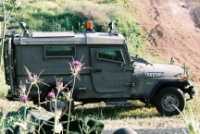
Experts: Israel economy should weather the Lebanon conflict

IDF: Military logistics costing Israel over NIS 10m a day
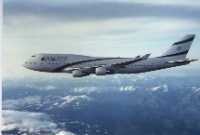
El Al issued a profit warning for the second quarter of 2006
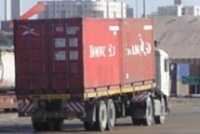
Ministry of industry & Trade: Exports to Jordan & Egypt increased in January-May
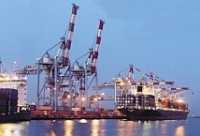
Ashdod port working at full steam until Haifa fully re-opens
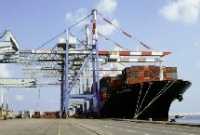
Zim will bear expenses for the transfer of containers unloaded at Piraeus to Ashdod
More news from Industry & Trade Section
>Israel signs double taxation treaty with Moldova/17.07.06
>Ministry of Industry & Trade: progress made on free-trade agreement with the Mercosur trade bloc/17.07.06
>Israel -EU Chamber of Commerce was inaugurated/17.07.06
>Lynn: “Forgeries are a cancer eating away at the fabric of our economy"/17.07.06
>Brosh: military operations in Gaza will not harm growth/10.07.06
>Heritage Foundation: Israel is ranked 36th in the 2006 Index of Economic Freedom/10.07.06
>Lynn: Israeli market is ready for greater import exposure/03.07.06
>Brosh: breakthrough in relations between Israel and Indonesia/03.07.06
>CBS: Israeli economy continues to improve/03.07.06
>New Defense Export Control Division commenced activity on July 2/03.07.06
